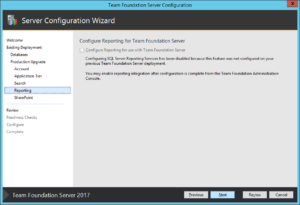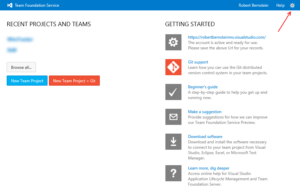I was running TFS 2013 Update 4 on top of SQL Server 2012 SP3 and was unable to upgrade to TFS 2017 because this version of the SQL database is not supported. So, I ran the SQL Server 2016 installer from the ISO and used the SQL Upgrade tool. I then uninstalled SQL Server 2012 …
Tag: TFS
Aug 28 2013
Get a list of all users who have checked files into a TFS Project
Have you ever wanted to get a list of all the users who have ever checked files into a TFS instance? Here’s how to do so from PowerShell:
|
1 |
tf history * /format:detailed /recursive /noprompt | Select-String "User:" | Sort-Object | Get-Unique |
Note that if you want this to appear in a GUI window, drop everything starting from “/noprompt”. Rob This post was migrated from https://blogs.msdn.microsoft.com/rob/2013/08/28/get-a-list-of-all-users-who-have-checked-files-into-a-tfs-project/.
Aug 27 2013
Redirecting TFS Command Output to Files
Today I discovered that you can redirect the output of Team Foundation Service’s tf.exe command to a file. I thought that because it displayed dialog boxes as the results of commands that you couldn’t redirect its output to files. However, commands such as tf history will do just that when you specify redirection, such as: …
Apr 26 2013
Administering Team Foundation Service (on the web, not on-premise)
If you are using Team Foundation Service (i.e. in the cloud, not our on-premise Team Foundation Server), finding the administration pages from the web site can be a bit tricky if you don’t know where to look. Log into your TFS account. If you don’t have one, you can sign up at http://tfs.visualstudio.com. In the upper-right corner …
Oct 13 2012
Solved: The working folder is already in use by the workspace
When trying to map a local folder to a TFS server as a different user than the one under which I was logged in, I kept getting the message:
|
1 |
The working folder [source path] is already in use by the workspace [workspace name];[owner] on computer [tfs server]. |
I was finally able to map the folder by first deleting the local workspace as the logged in user:
|
1 |
tf workspace /delete /server:[tfs server] [workspace name];[owner] |
Note that the “owner” was …
- 1
- 2


